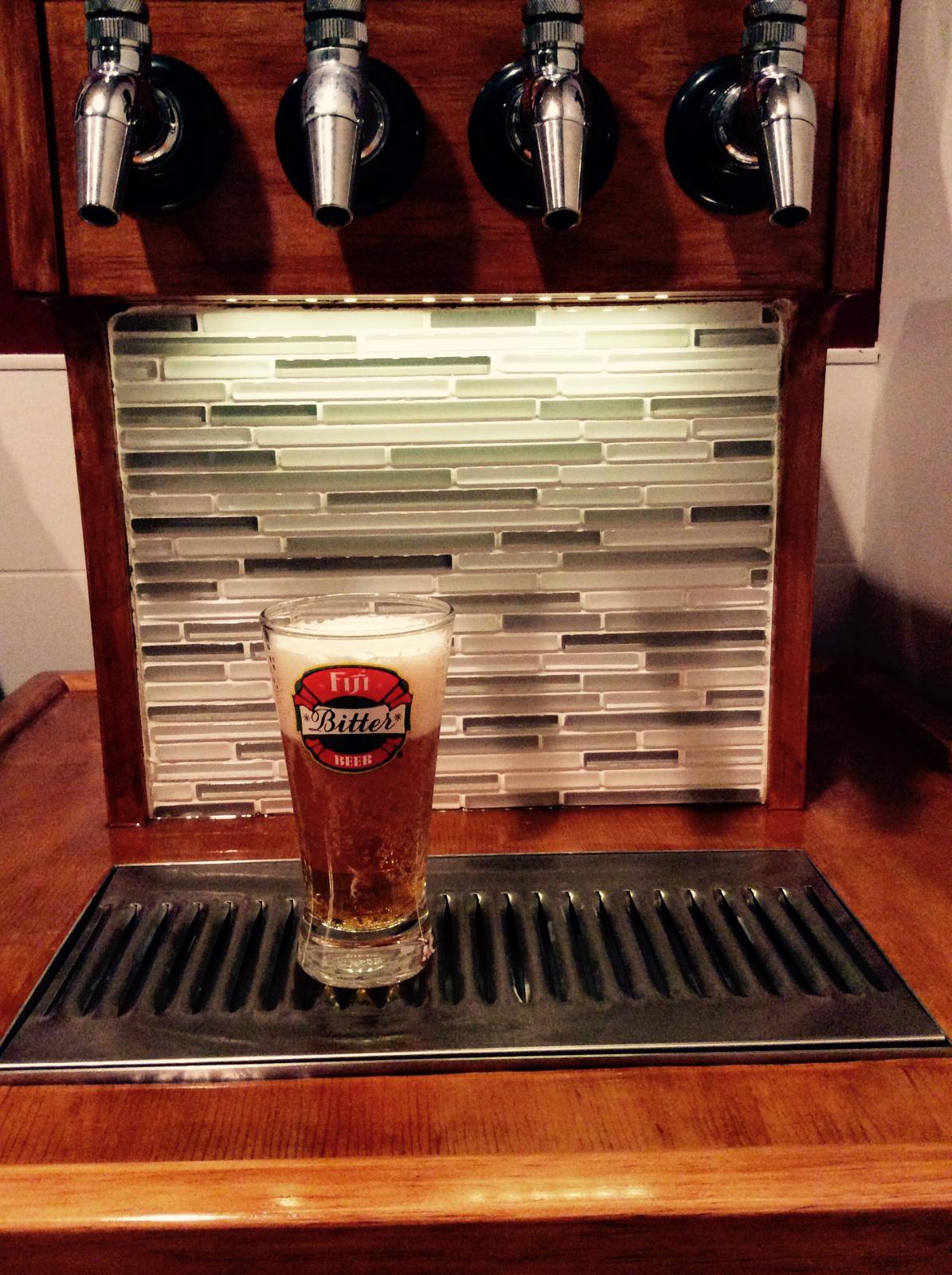applescrap
Be the ball!
I think it might be. Where can I get 7 gallons of Fiji water.

How could this post have one reply and that reply is to say that process is important? I'm starting to think that this thread says everything anybody would need to know about homebrewers and this forum.
The yeast. Without them we just have grass juice.
My water is very drinkable and changes frequently. The past six months I've been amending my water to better meet particular styles. Unfortunately, I've become obsessed with brewing quickly as possible and skirting most conventional wisdom. So, my last batch went back to straight out of the tap. If I can't discern the difference between it and a previous batch of the same beer made with "better water" I'm scrapping the water adjustment thing too.
Unless your water taste bad coming out of the tap, it probably isn't an issue. I would perfect everything else and then to take your already good beer to the next level get into water chemistry. My water sucks and tastes like chlorine. I just use RO water with simple additions. You don't need to be a rocket scientist with all the free spreadsheets out there.
Not saying it doesn't matter...just saying that most new brewers have much bigger problems to fix before worrying about water chemistry.
I just use RO water with simple additions. You don't need to be a rocket scientist with all the free spreadsheets out there.
RO water +10. Start with a clean slate and go from there. Don't leave it to luck. Luck is what uninformed people rely on.
I noticed an interesting this this year with my water... it went from 110 ppm to 330ppm over the course of a few months, and now its trending down. At last check it was around 270ppm. That's a huge difference!!!
With RO you take out 97% of everything so you're left with negligible minerals, even for poor source water. It also filters out nearly all chemical contaminants you don't want to consume.
RO systems are cheap, easy to install for home brewers, and can also provide great drinking water.
110ppm what? How did you notice this and how are you following this trend? Really curious, I'm using water authority published data for my neighborhood and that data shows decent fluctuation over course of the year. It's pretty soft all around with almost no sulfite though so I seem to get away with hitting hoppy beer with gypsum and malty beer with cacl2 but remain curious.
Where can I get 7 gallons of Fiji water.


Question... You say your water is drinkable and changes frequently. However you've been "amending" it for particular styles.
How do you know what your water is coming out of the tap? What are you doing to change it? It doesn't *sound* like you're describing starting with RO and building from scratch.
If you don't know your water profile going in, it's tough to say whether your amendments are making the water better or worse.
P.S. i suspect we are being trolled.
That said, if you live in an area that has a chlorine taste in the water, try just filling a couple of 5 gallon buckets full of water and let them "out gas" overnight - the chlorine will evaporate off the water and leave it relatively chlorine free.
This seems to be the last great frontier, and we certainly don't do much to make it easy.
One well-known water expert seems to revel in making obtuse water posts. Even went so far as to say perhaps people shouldn't be able to post in threads about water until they had a minimal base knowledge. I found that revealing, to say the least.
It does reveal that there are different types of home brewers out there.
To be fair there were a lot of people that were trying to be helpful, but giving blatantly wrong advice. They didn't know it because they weren't knowledgeable enough in the subject. They were just repeating tidbits they had heard elsewhere. For a lot of water situations you can follow simple rules. Others are vastly more complex and require more knowledge and understanding. I don't see what's wrong with wanting people to not spread incorrect information.
Just to clarify, overnight will work for chlorine, but will NOT work for chloramine. More and more municipalities are going to chloramine for this exact reason -- they can use less of it and it won't dissipate as easily.
A high quality charcoal filter will also remove chloramine
Enter your email address to join: